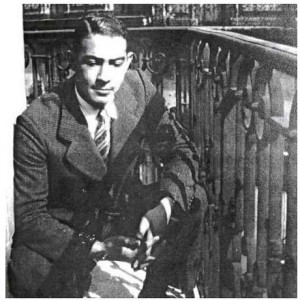CULTURE Between Italy and France, a Nobel for the Art of Memory
Memory, oblivion, identity, guilt. Around these issues Patrick Modiano, who commented on winning the Nobel prize with a simple “C’est bizarre!”, has written about thirty novels, children’s books, screenplays, song lyrics.
In a recent interview he declared having “the impression to have written the same book for 45 years.” The profile on the official Noble Prize website is, as for all winners, amazingly simple. For Modiano, Nobel Prize for Literature 2014, it states that he was born on July 30th, 1945 in Paris, “where he lived at the time of the announcement”. The official motivation follows: “for the art of memory with which he has evoked the most ungraspable human destinies and uncovered the life-world of the occupation”.
French, born to a Flemish mother and an Italian Jewish father, author of about thirty books that in spite of their great success in France are not that well known abroad, Modiano has a personal history that in no way corresponds to the simplicity of the official profile, starting with the date of birth. In fact for at least a decade after the publication of his first book – “La Place de l’Étoile” 1968 – he has continued to plead to be born in 1947, probably in an attempt to distance himself from World War II. His novels are often short, melancholic, almost elusive, and are all obsessively centered on the Nazi occupation of Paris, starting from that period to the turn of the century, continuously returning to the same theme, on the same places and on the same objects, to compose one large fresco.
He himself has declared: “After every novel I have the impression of having cleared it up, but I know that I will come back to it again and again, for those details and for those little things that are part of who I am. In the end we are all determined by the place and time of our birth.”
Much of the work of Modiano deals with the figure of his father, Alberto (in the picture) , an Italian Jew originally from Tuscany whose family had settled in Thessaloniki and then moved from one to another Italian town to ultimately land in Paris. Alberto Modiano managed not to appear in the Parisian census on 1940, thus escaping the obligation of wearing the yellow star, hence being forced into hiding. He managed to first to blend, then to escape and finally obtain salvation after being arrested by the Nazis in 1943, escaping deportation probably thanks to friends among the collaborators. And his figure, reinterpreted in many of the novels in which Patrick Modiano mixed reality and fiction, is gradually rehabilitated over the years, but remains at the center of stories whose protagonists are void, absence, solitude, silence and oblivion, mixed with traces of the past, documents and a maniac reconstructions of history. A literature of ghosts, spies, illegal trafficking, crimes and betrayals.
Reluctant to any form of worldliness, shy, used to pauses and long silences, over the years Modiano has dived in the memories of his family, studying every obscure event, persecution, false identity and possible compromise with Nazi occupiers, putting under observation a society who maybe has never really come to terms with the years of occupation and with the deportations that took place in France, with the complicity of many of its citizens.

